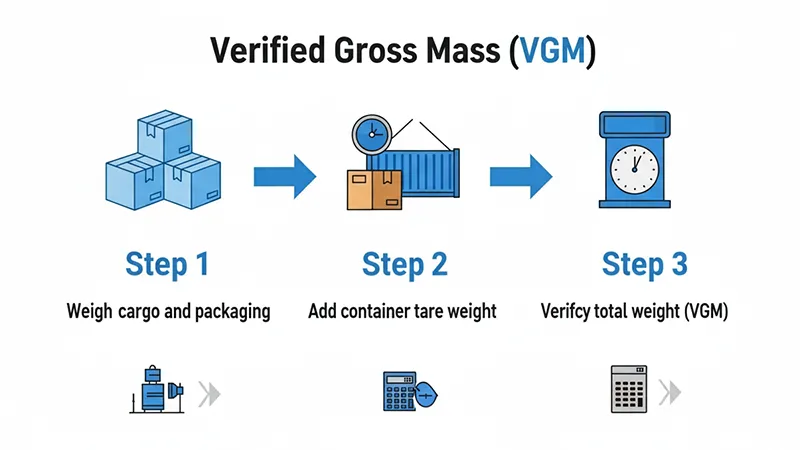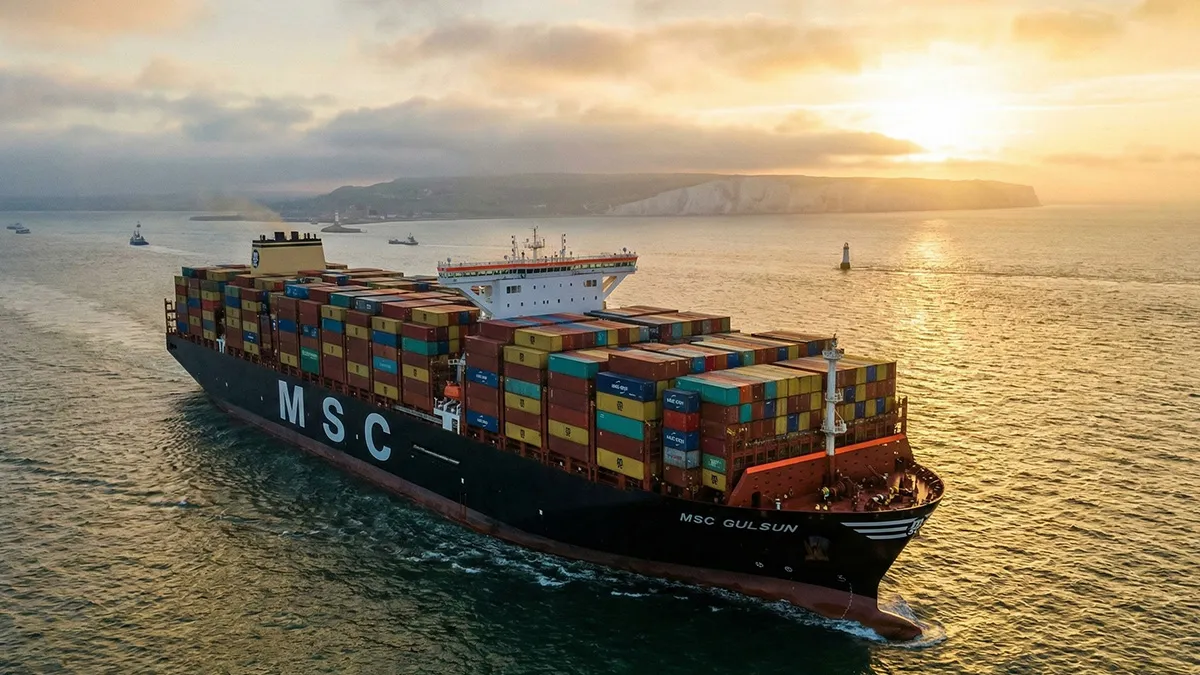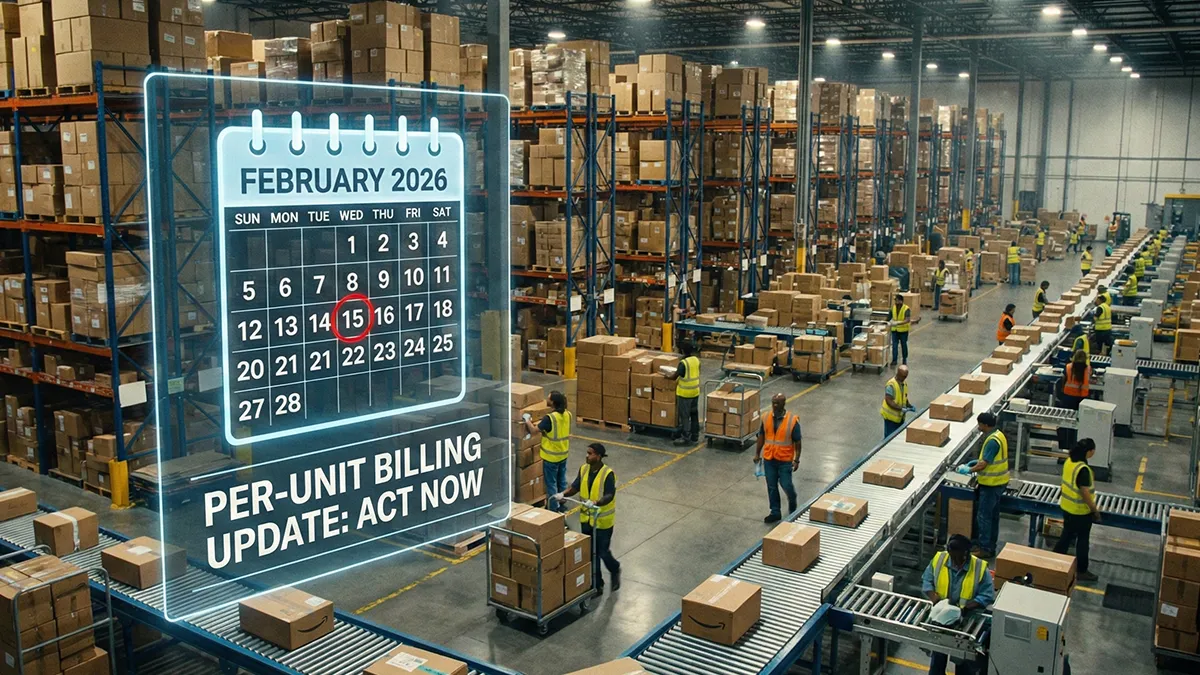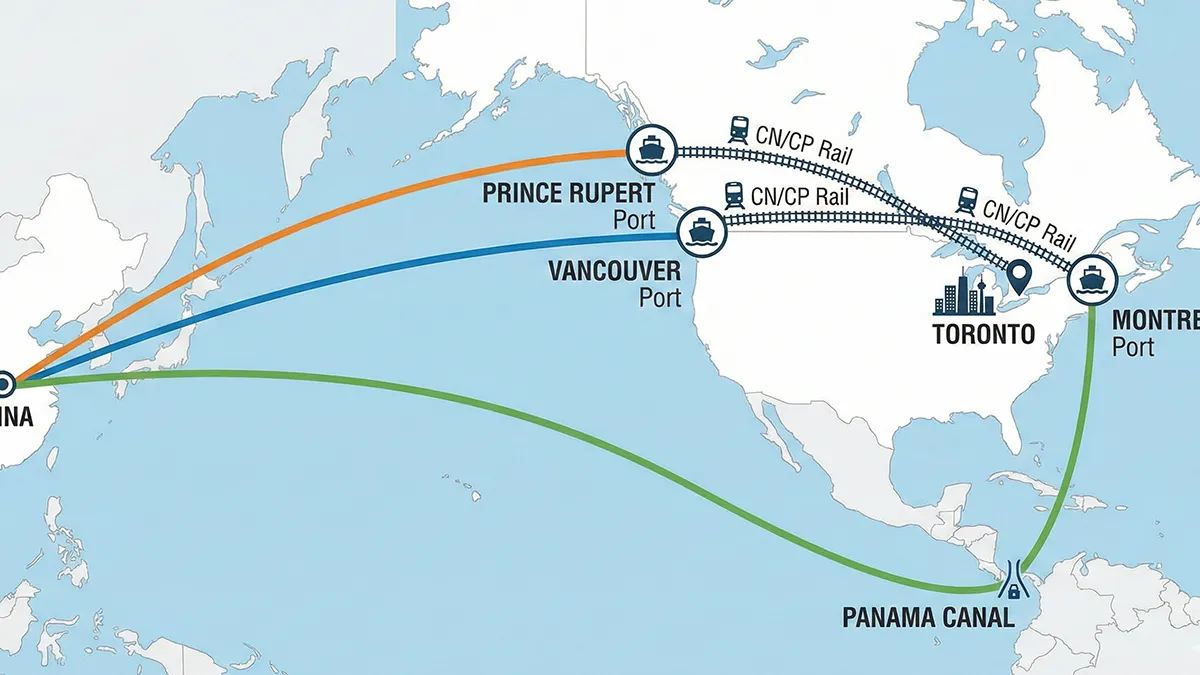What Is Verified Gross Mass (VGM)? Meaning, Definition, and SOLAS Compliance Guide

Introduction: Why Verified Gross Mass Matters in Global Shipping
In the intricate world of international logistics, one concept quietly safeguards millions of tons of cargo and thousands of lives at sea — Verified Gross Mass (VGM).
Since the International Maritime Organization (IMO) implemented the SOLAS VGM regulation in 2016, every exporter and freight forwarder has been required to verify the exact weight of each container before loading.
Far from being a technical formality, VGM in shipping represents a global commitment to safety, transparency, and operational efficiency. A single misdeclared container weight can destabilize a vessel, damage cargo, and disrupt the entire supply chain.
At Zbao Logistics, we ensure every container shipped from China meets SOLAS requirements — from accurate weighing and declaration to on-time vessel loading.
What Is Verified Gross Mass (VGM)?
Verified Gross Mass, often shortened to VGM, is the total verified weight of a packed container, including:
-
The cargo and its packaging
-
Dunnage and securing materials
-
The container’s tare weight
In short:
VGM = Cargo Weight + Packaging Weight + Container Tare Weight
This rule, defined under SOLAS Regulation VI/2, ensures the safe stowage and stability of container vessels. Without a declared and verified VGM, a carrier cannot legally load the container on board.
Understanding the meaning of VGM in shipping is essential for every exporter who values safety and compliance in the global trade environment.
The Importance of Verified Gross Mass in Shipping
1. Safety Above All
VGM exists to protect people and cargo. Before the SOLAS regulation, thousands of containers were misdeclared each year, leading to vessel tilting and cargo loss. Correct VGM reporting guarantees proper stowage and weight distribution — preventing disasters before they happen.
2. Efficiency and Cost Savings
Precise VGM declarations streamline vessel planning and reduce terminal re-handling costs. When working with a reliable China freight forwarder such as Zbao Logistics, your shipments are always verified, documented, and cleared before cutoff, ensuring seamless loading.
3. Legal and Financial Protection
Non-compliance can lead to penalties, demurrage, or even shipment refusal at port terminals.
Accurate VGM not only fulfills legal requirements but also safeguards your logistics reputation — a critical asset in international trade.
How to Calculate Verified Gross Mass (VGM Weight)
The IMO allows two official methods for determining VGM, both equally accepted under the SOLAS Convention:
Method 1 – Weighing the Packed Container
The entire sealed container is weighed using a calibrated, certified scale.
-
✅ Most accurate and reliable
-
⚙️ Typically performed at factories, CFS stations, or port terminals
Method 2 – Summation of Components
All cargo items, pallets, and packaging materials are weighed individually, then combined with the tare weight printed on the container’s CSC plate.
-
✅ Convenient for shippers without access to large scales
-
⚠️ Requires precise measurement and documentation
| Container Type | Tare Weight (KG) | Max Gross (KG) | Max Payload (KG) |
|---|---|---|---|
| 20GP | 2,200 | 30,480 | 28,280 |
| 40GP | 3,700 | 30,480 | 26,780 |
| 40HQ | 4,100 | 32,500 | 28,400 |
| 45HQ | 4,800 | 32,500 | 27,700 |
Example:
Cargo + Packing = 18,850 kg
Tare = 4,100 kg
✅ Verified Gross Mass = 22,950 kg
When and How to Submit Your VGM Form
Each carrier sets a VGM cutoff, usually 24–48 hours before vessel departure. Missing this deadline means your container won’t load.
Information Required on a VGM Form
-
Shipper name and address
-
Booking or B/L number
-
Container and seal numbers
-
Verified Gross Mass (kg)
-
Weighing method used (1 or 2)
-
Authorized signature and contact details
VGM documents can be submitted through:
-
Carrier online systems such as Maersk, COSCO, or CMA CGM
-
EDI platforms like INTTRA
-
Or directly via your forwarder — at Zbao Logistics, we handle the VGM form and digital submission on your behalf to ensure 100 % compliance.
VGM Procedures in China
China’s key export ports — Shanghai, Ningbo, Shenzhen, Qingdao, and Guangzhou — strictly enforce the SOLAS VGM rule.
-
Factory / CFS Weighing – Certified scales issue official VGM certificates containing container number, seal number, and verified weight.
-
Terminal Weighing – Ports can provide weighing services (typically USD 20–30 per container).
-
Forwarder Declaration – Through integrated EDI systems, Zbao Logistics automatically uploads your VGM to carrier databases, ensuring timely validation before cutoff.
If you also require customs clearance in China, our dedicated team manages export documentation in tandem with the VGM process for complete shipment accuracy.
Responsibilities in VGM Reporting
The World Shipping Council clarifies that the responsibility lies primarily with the shipper named on the Bill of Lading. However, in practice:
| Party | Responsibility |
|---|---|
| Shipper | Obtain and declare accurate VGM; sign the declaration |
| Freight Forwarder | May weigh and submit VGM on shipper’s behalf |
| Carrier / Port Terminal | Verify VGM before loading |
| Ship Master | Approve stowage plan using verified weights |
Working with a professional forwarder ensures no data discrepancy between the VGM form, booking confirmation, and Bill of Lading.
Common VGM Mistakes and How to Avoid Them
| Error | Impact | Prevention |
|---|---|---|
| Misdeclared tare weight | Rejection at port | Double-check CSC plate data |
| Missing signature or stamp | Document invalid | Always use authorized signatory |
| Late submission | Missed vessel | Submit VGM ≥ 48 h before cutoff |
| Wrong weighing method noted | Non-compliance | Specify method 1 or 2 clearly |
Zbao Logistics integrates automatic verification reminders so you never miss the cutoff or submit incomplete data.
How Major Carriers Handle VGM
Top carriers such as Maersk, MSC, and CMA CGM have digital VGM submission portals. For instance, Maersk’s platform prompts shippers to upload VGM data during booking, while COSCO’s portal connects directly with Chinese terminal systems for instant confirmation.
These innovations reduce manual input errors and enhance visibility across the logistics chain — practices that Zbao Logistics also mirrors through its automated submission process.
VGM and SOLAS Compliance: Legal Perspective
The SOLAS VGM regulation is a legally binding requirement under international maritime law. Containers without verified weights cannot be loaded on vessels.
Non-compliance can lead to:
-
Container hold or re-weighing
-
Administrative fines or penalties
-
Increased inspection rates for future shipments
By maintaining accurate, auditable records, exporters demonstrate reliability and protect their global shipping credibility.
Real-World Case: How VGM Accuracy Saved a Client USD 3,000
A European importer shipping four 40HQ containers of electronics from Shenzhen initially estimated cargo weights. Upon verification, Zbao Logistics identified a 2,200 kg discrepancy.
If declared incorrectly, the port system would have flagged the load, delaying the vessel and incurring re-booking fees over USD 3,000.
Our proactive weighing and re-submission ensured the containers sailed on schedule — a clear example of how professional VGM management protects clients’ margins and timelines.
Zbao Logistics: Your Partner in Verified Gross Mass and Global Compliance
At Zbao Logistics, we go beyond forwarding. We help you ship smarter — from factory pickup to VGM declaration, customs clearance, and delivery to your final destination.
Our integrated services include:
-
Certified weighing at factory, CFS, or terminal
-
VGM form preparation and carrier submission
-
Real-time EDI tracking and confirmation
-
Full FCL and LCL sea freight solutions
Explore our FCL Sea Freight Services and case studies of Amazon FBA shipping to see how we deliver compliant, cost-efficient logistics from China to the U.S., Canada, and Europe.
Conclusion: Verified Gross Mass Is the Foundation of Safe Shipping
Verified Gross Mass is more than a number — it’s the foundation of maritime safety and global trade reliability.
By verifying every container’s true weight, shippers protect lives, cargo, and supply chains.
At Zbao Logistics, we combine technical precision with years of freight expertise to make your VGM process simple, compliant, and stress-free.
Whether you’re exporting FCL shipments, managing Amazon FBA freight, or consolidating LCL cargo, we ensure your containers meet SOLAS VGM standards every time.
👉 Get a Free Quote or Talk to Our Team today to ship safely and confidently.
FAQ: Verified Gross Mass (VGM) Meaning and Requirements
1. What does Verified Gross Mass mean?
It’s the total verified weight of a packed container — cargo, packaging, and tare combined — required under the SOLAS Convention.
2. Who submits the VGM declaration?
The shipper listed on the Bill of Lading, though freight forwarders such as Zbao Logistics can handle submission on their behalf.
3. What happens if the VGM is missing or incorrect?
Carriers will refuse loading. Terminals may impose re-weighing fees or storage costs.
4. Is VGM required for LCL shipments?
Usually not. Consolidators handle the VGM for the full container on behalf of multiple shippers.
5. Where can I learn more about SOLAS VGM rules?
Refer to the IMO’s official VGM Guidelines and the World Shipping Council’s resources for global standards and FAQs.


